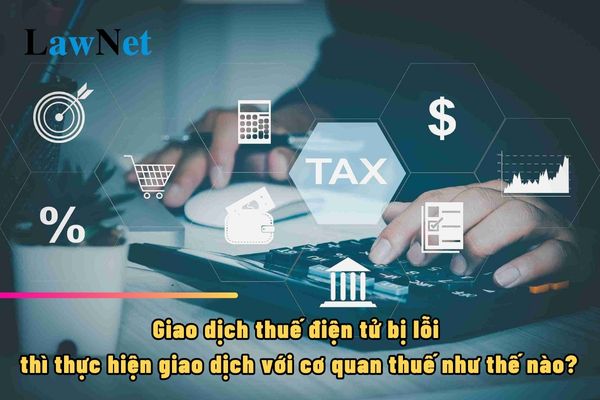What are regulations on dealing with breakdown during e-tax transactions with tax authorities in Vietnam?
What are regulations on dealing with breakdown during e-tax transactions with tax authorities in Vietnam?
Based on Clause 1, Article 9 Circular 19/2021/TT-BTC on handling breakdown during the e-tax transaction process as follows:
Handling breakdown during e-tax transactions
1. In the event that an e-transaction cannot be performed due to a failure in the taxpayer's technical infrastructure system, the taxpayer must self-remedy the issue.
If, by the tax filing or payment deadline, the taxpayer's technical infrastructure system has not been remedied, the taxpayer shall conduct transactions with the tax authority by submitting paper documents directly at the tax authority or via postal service, and paying taxes directly at the bank or the State Treasury as stipulated in Decree No. 11/2020/ND-CP and guiding documents.
2. In the event that an e-transaction cannot be performed due to a failure in the technical infrastructure system of the bank or the intermediary payment service provider, the bank or the intermediary payment service provider is responsible for notifying the taxpayer and coordinating with the General Department of Taxation for immediate support and implementing measures to promptly remedy the issue; the taxpayer has the right to make payments via other banks/intermediary payment service providers or by directly paying taxes at the bank/State Treasury as stipulated in Decree No. 11/2020/ND-CP and guiding documents.
...
Thus, as per the above regulation, if there is an error in e-tax transactions, transactions with the tax authority should be conducted by submitting paper documents directly at the tax authority or via postal service, and paying taxes directly at the bank or the State Treasury.

What are regulations on dealing with breakdown during e-tax transactions with tax authorities in Vietnam? (Image from the Internet)
May taxpayers use the bank's e-payment service to conduct e-tax transactions in Vietnam?
Based on Article 4 Circular 19/2021/TT-BTC stipulating the principles of e-tax transactions as follows:
Principles of e-tax transactions
1. Taxpayers conducting e-tax transactions must have access to and use of the Internet, an email address, and a digital signature as stipulated in Article 7 of this Circular, or a mobile phone number issued by a telecommunications company in Vietnam (for individuals who have not been issued a digital certificate) registered for transactions with the tax authority, except where taxpayers select the e-tax payment method as stipulated at Point e, Clause 2 of this Article according to the bank's or intermediary payment service provider’s regulations.
2. Taxpayers may choose the following methods to conduct e-tax transactions through:
a) The General Department of Taxation's e-portal.
b) The National Public Service Portal, the Ministry of Finance's e-portal linked with the General Department of Taxation’s e-portal.
c) Other competent state agency e-portals (except Point b of this Clause) linked with the General Department of Taxation’s e-portal.
d) Third-party e-VAT service providers approved by the General Department of Taxation to connect with the General Department of Taxation's e-portal.
e) The banking system’s e-payment service or intermediary payment service providers to conduct e-tax payment.
Thus, as per the above regulation, taxpayers can fully use the bank's e-payment service to conduct e-tax transactions.
What are regulations on determination of tax payment date in Vietnam?
Based on Article 58 Law on Tax Administration 2019 stipulating the determination of the tax payment date as follows:
Determination of the tax payment date
1. In the case of non-cash tax payments, the tax payment date shall be the date the State Treasury, commercial bank, other credit institution, or service organization debits the taxpayer’s account or the account of the person paying on behalf and records it on the tax payment receipt.
2. In the case of direct cash tax payments, the tax payment date shall be the date the State Treasury, tax administration authority, or tax collection agent issues a tax payment receipt.
There are two scenarios to determine the tax payment date: non-cash tax payments and direct cash tax payments as follows:
- In the case of non-cash tax payments, the tax payment date shall be the date the State Treasury, commercial bank, other credit institution, or service organization debits the taxpayer’s account or the account of the person paying on behalf and records it on the tax payment receipt.
- In the case of direct cash tax payments, the tax payment date shall be the date the State Treasury, tax administration authority, or tax collection agent issues a tax payment receipt.
Thus, in the case of e-tax payment transactions, the tax payment date shall be the date the State Treasury, commercial bank, other credit institution, or service organization debits the taxpayer’s account or the account of the person paying on behalf and records it on the tax payment receipt.

